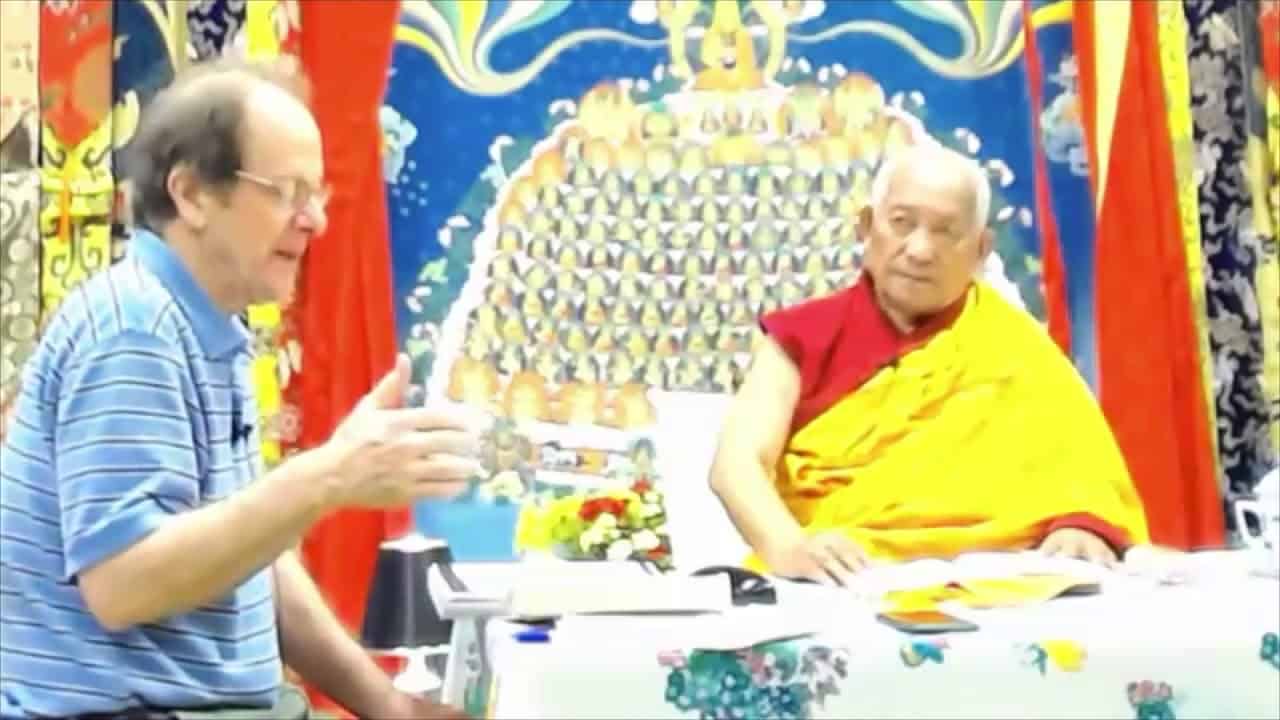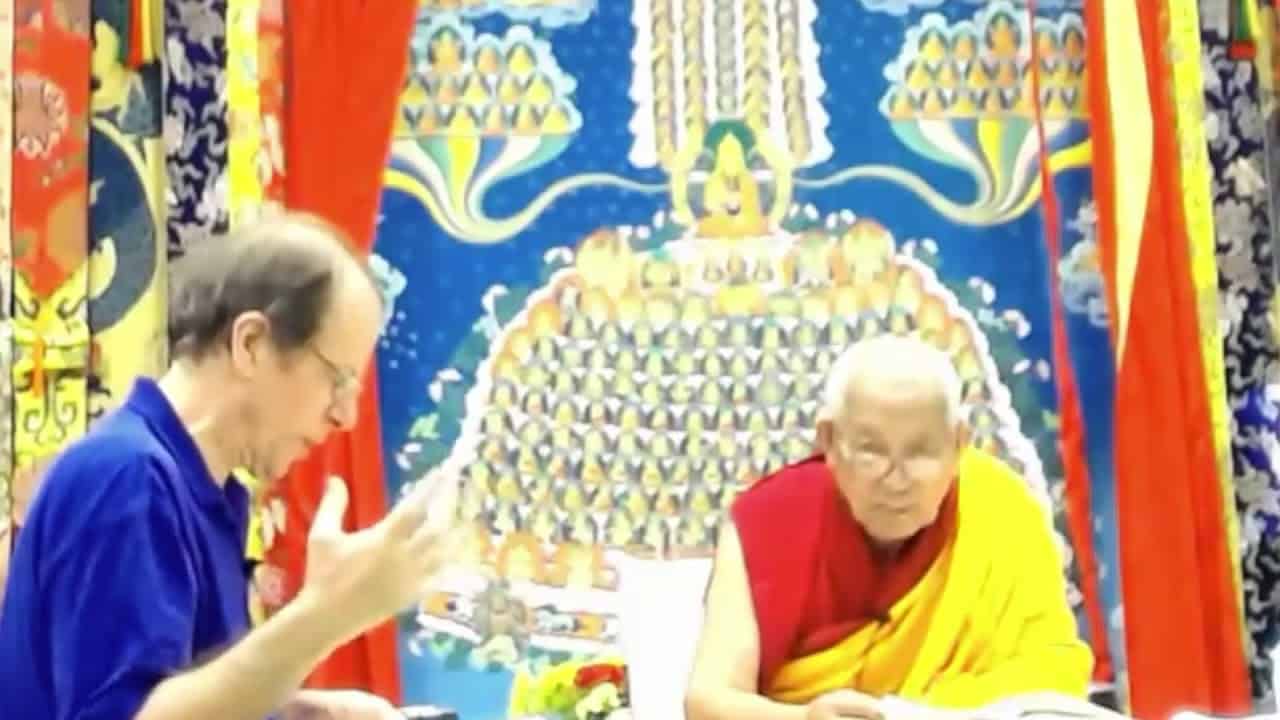Chapter 13: Verses 320-324
Part of a series of teachings on Aryadeva's 400 Stanzas on the Middle Way given on an annual basis at Sravasti Abbey by Geshe Yeshe Thabkhe beginning in 2013.
Motivation from Chandrakirti’s Supplement to the Middle Way
Now I have independence and favorable conditions.
If I do not take full advantage of this time
I will plunge into the abyss and
Fall under the control of others.
Who will let me out?
- Showing the flaws of the contention that sound is apprehended through contact
- Refuting the idea that mind apprehends objects after travelling to them
- Refuting the objection that if sense organs and their objects do not exist inherently, then the aggregate of recognition is nonexistent
- Refuting the objection that of the aggregate of discrimination does not exist inherently, it is impossible to posit phenomena
- Showing that lack of true existence is, like magic, a cause for amazement
Geshe Yeshe Thabkhe
Geshe Yeshe Thabkhe was born in 1930 in Lhokha, Central Tibet and became a monk at the age of 13. After completing his studies at Drepung Loseling Monastery in 1969, he was awarded Geshe Lharampa, the highest degree in the Geluk School of Tibetan Buddhism. He is an emeritus professor at the Central Institute of Higher Tibetan Studies and an eminent scholar of both Madhyamaka and Indian Buddhist studies. His works include Hindi translations of The Essence of Good Explanation of Definitive and Interpretable Meanings by Lama Tsongkhapa and Kamalasila's commentary on the Rice Seedling Sutra. His own commentary, The Rice Seedling Sutra: Buddha’s Teachings on Dependent Arising, was translated into English by Joshua and Diana Cutler and published by Wisdom Publications. Geshela has facilitated many research works, such as a complete translation of Tsongkhapa’s The Great Treatise on the Stages of the Path to Enlightenment, a major project undertaken by the Tibetan Buddhist Learning Center in New Jersey where he teaches regularly.


